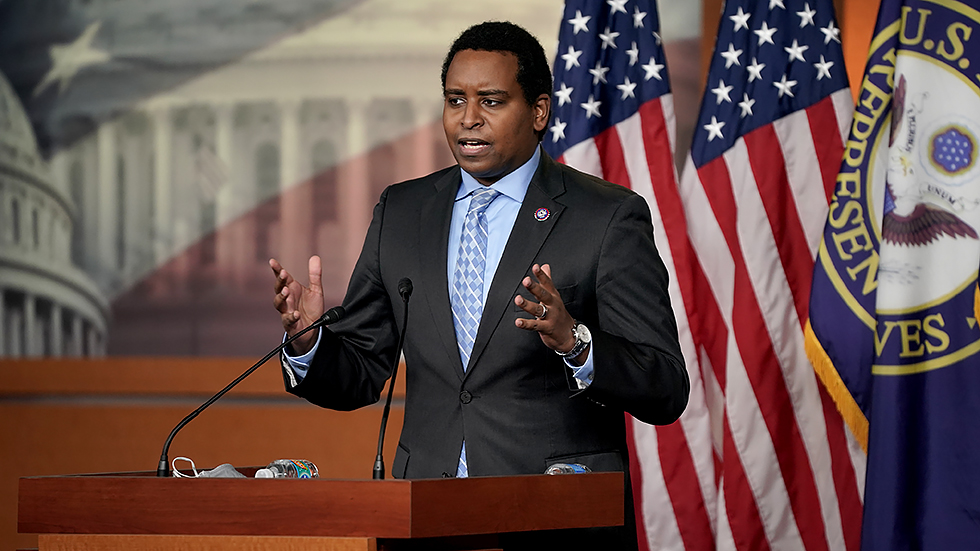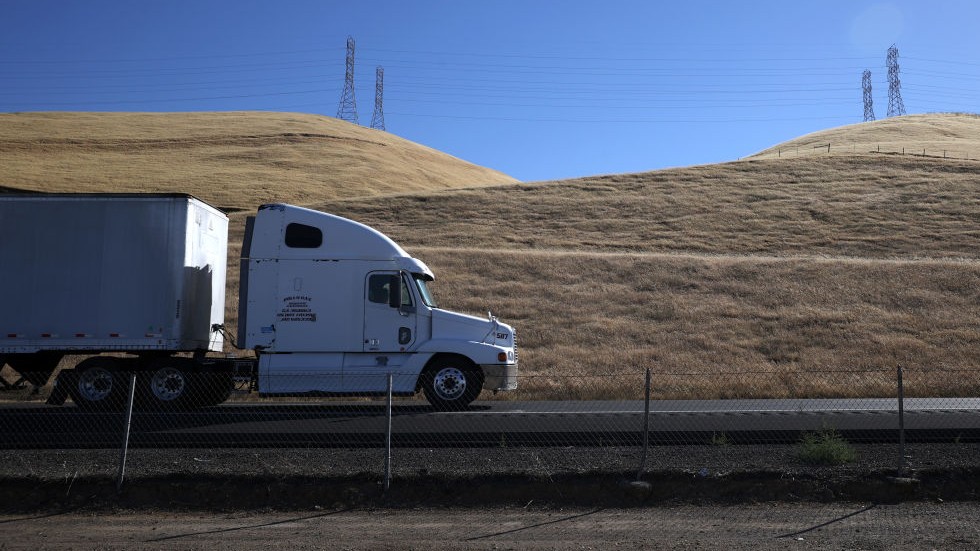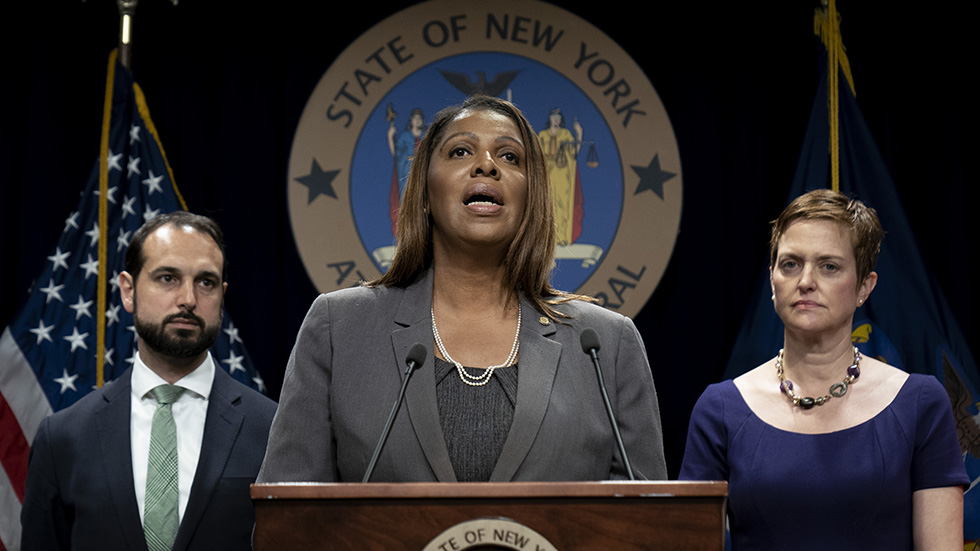Equilibrium/Sustainability — The warming Arctic is freezing Chinese crops
Today is Wednesday. Welcome to Equilibrium, a newsletter that tracks the growing global battle over the future of sustainability. Subscribe here: digital-staging.thehill.com/newsletter-signup.
The warming Arctic is leading to cold snaps in the faraway subtropics of East Asia, disrupting plant growth, crop harvests and human social and economic life, according to a study from the University of Zurich.
This is the same phenomenon that helped cause last month’s Northeastern snowstorm and Florida freezes. A warmer Arctic means a chance for the polar vortex to wander much further from the poles, causing cooler winters elsewhere.
In this case, such weather fluctuations are affecting one of the world’s chief breadbaskets. In addition to reducing how much carbon a given landscape can hold down, this fugitive Arctic cold “also reduces the agricultural productivity of cereals, fruits, root vegetables, and legumes,” first author Jin-Soo Kim said in a statement.
Today we’ll look at another staggeringly large risk: the ongoing collapse in biodiversity, which House Democrats and environmental groups warn could jeopardize the health of humans and ecosystems, while wreaking havoc on the economy. Then we’ll turn to the struggle to determine what kind of trucks — diesel, battery or hydrogen — will dominate the future of low-carbon transport.
For Equilibrium, we are Saul Elbein and Sharon Udasin. Please send tips or comments to Saul at selbein@digital-staging.thehill.com or Sharon at sudasin@digital-staging.thehill.com. Follow us on Twitter: @saul_elbein and @sharonudasin.
Let’s get to it.
House, groups demand biodiversity strategy

Fifty House Democrats, with the support of more than 100 environmental groups and academics, demanded the creation of a national biodiversity strategy in a letter to President Biden on Tuesday.
First words: “The loss of biodiversity presents a direct threat to our security, health, and well-being,” said the letter, sent by Rep. Joe Neguse (D-Colo.).
“As species decline and habitats degrade, we lose critical ecosystem services that provide us with clean water, fertile soils, food, and the very air we breathe.”
Background: The letter follows up on Neguse’s January 2021 proposal, H.Res. 69, for a federal biodiversity strategy.
While the representatives who signed Tuesday’s letter were all Democrats, the 39 co-sponsors of last January’s resolution also included one Republican: Rep. Brian Fitzpatrick (Pa.).
Addressing “compounding environmental crises”: Tuesday’s letter commended Biden for his efforts thus far to address “compounding environmental crises” — including his commitment to conserving 30 percent of U.S. lands and waters by 2030.
But the signers also warned that as many as a million species worldwide are at risk of extinction, while in North America alone, almost 3 billion birds have disappeared since 1970.
Disproportionate impacts: As habitats and critical ecosystems degrade, the availability of clean water, air and food also diminishes, according to the letter. The World Economic Forum has likewise identified biodiversity loss as one of the top five threats to the global economy, the signers added.
Not only does the country’s loss of biodiversity imperil human health and cause economic distress, it “also disproportionately impacts communities of color, low-income communities, tribal communities, and others that have historically faced environmental injustice,” according to the letter.
ADDRESSING BIODIVERSITY LOSS, WHILE PROMOTING SOCIAL EQUITY
The letter asks that the government address the “five drivers of biodiversity loss,” which H.Res. 69 defines as: Human alteration of terrestrial and marine environments, exploitation of wildlife, acceleration of climate change, introduction of invasive species and pollution of air, land and water.
The federal biodiversity strategy, according to the letter, should also “promote social equity and environmental justice,” while coordinating the national response with other such initiatives around the world.
‘A direct threat’ to America’s well-being: “The United States ought to be playing a global leadership role in addressing the biodiversity crisis, and with President Joe Biden in office we have the opportunity to do so,” Neguse said in a statement.
“The decline of biodiversity presents a direct threat to our nation’s well-being, and it’s time for the U.S. to take an ambitious whole-of-government approach to address these issues,” he added.
The ‘foundation’ of our planet: Jamie Rappaport Clark, president and CEO of the Defenders of Wildlife organization, described biodiversity as “the foundation our planet is built on,” emphasizing that humans “depend on nature and the richness of species within it.”
“If the extinction crisis continues unabated, our nation will lose our unique landscapes, wildlife and biodiversity forever,” Rappaport Clark said in a statement. “It is imperative for President Biden to establish a national biodiversity strategy before it’s too late.”
Green groups rally for biodiversity: On the same day that Neguse and his colleagues sent their letter to the president, Defenders of Wildlife and several other national conservation groups launched a campaign to advocate for a domestic biodiversity strategy.
Worldwide, 193 other countries have already developed similar such plans, the cohort said in a statement.
The movement to implement a federal government strategy is garnering increasing support, with 120 environmental organizations, scientists and university students across the U.S. supporting its creation, according to the groups.
Concrete steps needed: Addie Haughey, legislative director of Earthjustice, called upon Biden to “take concrete steps to prevent extinctions,” such as bolstering the Endangered Species Act and investing in the recovery of threatened species.
Last words: “The U.S. must take action to address the biodiversity crisis that continues to worsen alongside the climate emergency because our own fate is inextricably linked to the plants and animals with which we share this planet,” Haughey added.
Which fuel will dominate trucking?

The global trucking industry is in the midst of a three-way battle over which engine type will dominate the coming carbon-conscious age: internal combustion, battery-electric or hydrogen fuel cell, according to industry experts.
The results of the heavy vehicle engine wars will determine the future of America’s energy landscape, from filling stations and factories to pipelines and recycling.
First steps: “Within the next decade, which platform — internal combustion, battery electric or hydrogen — will represent the plurality of new vehicle sales for long haul trucking?” asked Steve Hellman, Mobility Partners managing partner, at a Wednesday debate hosted by the consulting group Mobility Impact Partners.
Diesel’s defending advantage: For all the hype around hydrogen and battery electric, diesel’s dominance is tough to beat, argued Allen Schaeffer, executive director of the Diesel Technology Forum.
Diesel currently dwarfs all competitors, with 11 million vehicles on the road — most of them owned by small, relatively conservative operators with fewer than 20 trucks, and fueled by an existing network of more than 150,000 fueling stations, Schaeffer argued.
Even in California, home to the most ambitious heavy vehicle electrification program in the country, only 40 percent of heavy tractors sold by 2035 will have to be zero emissions — “meaning 60 percent won’t be,” Schaeffer said.
Batteries bet on efficiency: But in terms of efficiency and total cost of ownership, nothing can compete with batteries, said Colin Murphy of the UC Davis Policy Institute.
That’s particularly true given the threat of climate change, according to Murphy.
“It’s no longer a future problem,” he said. “The question is whether we pay money to reduce carbon emissions or pay money to helicopter people off roofs or rebuild fire-destroyed towns.”
Given that context, Murphy argued, batteries offer the “quickest, cheapest, least risky pathway to zero carbon.” That’s because making low carbon fuel for hydrogen fuel cells or internal combustion engines requires, respectively, two-to-fourfold the amount of clean power as charging a battery.
THE FUTURE IS ‘ECLECTIC’
But for truckers impatient to get back on the road — and the 150,000 fuel stations accustomed to servicing them — hydrogen offers the best of both worlds, argued Craig Scott, who runs the alternative fuels program at Toyota North America, the most pro-hydrogen of the major carmakers.
Hydrogen offers a clean, familiar experience: “We hear a lot about batteries, but hydrogen is scaling rapidly in the U.S., and the world has 350 terawatts of low-carbon hydrogen supply,” Scott said.
That supply, he explained, is already servicing trucks like the hydrogen-powered Toyota fleet that currently serves the port of Los Angeles.
“No fuel is better for long haul transport,” Scott said.
Battery electric trucks weigh twice as much and take far longer to refuel — at least, barring the emergence of fueling stations that can swap a new, full battery for an empty one, according to Scott.
Hydrogen, he argued, provides customers with a simpler replacement for what they already have: a rapid, decentralized refueling — somewhat independent of the local grid — without the loud toxic, smelly, planet-warming experience of diesel.
An electric rebuttal: But while hydrogen — unlike diesel — has “a clear pathway” to zero carbon, making enough clean hydrogen to power the nation’s trucks will take far more clean power than just powering the trucks directly, Murphy the battery proponent argued.
Electric’s Achilles Heel: Clean power and reliance on a functional grid — recently not available in Massachusetts — is battery-electric’s greatest weakness, diesel proponent Schaeffer argued.
Without full decarbonization of the fossil fuel sector, “you’re just moving emissions from tailpipes to smokestacks,” Schaeffer said.
Murphy concurred: “If we don’t decarbonize the grid, none of this matters,” he said, adding that a nationwide fleet of battery powered trucks — which could automatically charge when the sun is shining and wind is blowing, would provide just the sort of flexible demand that renewable-powered grids need.
Last words: All three debaters agreed on one thing: The next decade will hold a mix of all three strategies, as well as hybrids — like battery hydrogen — that combine them.
“It’s an all eclectic future, not an all-electric future,” Schaeffer said.
Water Wednesday
 State officials push for clean water protections, California faces off with deep-sea mining and NGOs call for end to Gulf of Mexico oil leases.
State officials push for clean water protections, California faces off with deep-sea mining and NGOs call for end to Gulf of Mexico oil leases. California, New York officials urge Biden to expand clean water protections
- California Attorney General Rob Bonta (D) and New York Attorney General Letitia James (D) are urging the Biden administration to repeal a Trump-era rule that has significantly reduced protections for waterways under the Clean Water Act, a news release from Bonta’s office said. “After a bone-dry January, California appears unlikely to escape yet another devastating drought,” Bonta said in a statement. “These conditions are only going to worsen as the impacts of climate change grow increasingly severe.
Assemblywoman introduces bill to protect California coasts from mining
- Assemblywoman Luz Rivas (D) introduced a bill on Tuesday that could help protect the state’s coastline from deep sea mining — a process that can be used for sourcing raw materials in the clean energy sector, the Santa Cruz Sentinel reported. Off California’s northern coast are gold and titanium deposits, which manufacturers could use to produce electric vehicle batteries and parts, the Sentinel reported.
Emboldened by victory, groups push Gulf oil harder
- After a federal judge threw out Lease Sale 257 in the Gulf of Mexico — the largest in U.S. history — a coalition of 300 NGOs is petitioning the Biden administration to end the leases of the hundreds of other operations that got their permit based on the same flawed assumption: that more drilling would decrease, not increase, U.S. emissions, according to the Center for Biological Diversity.
Please visit The Hill’s sustainability section online for the web version of this newsletter and more stories. We’ll see you on Thursday.
Copyright 2024 Nexstar Media Inc. All rights reserved. This material may not be published, broadcast, rewritten, or redistributed..













